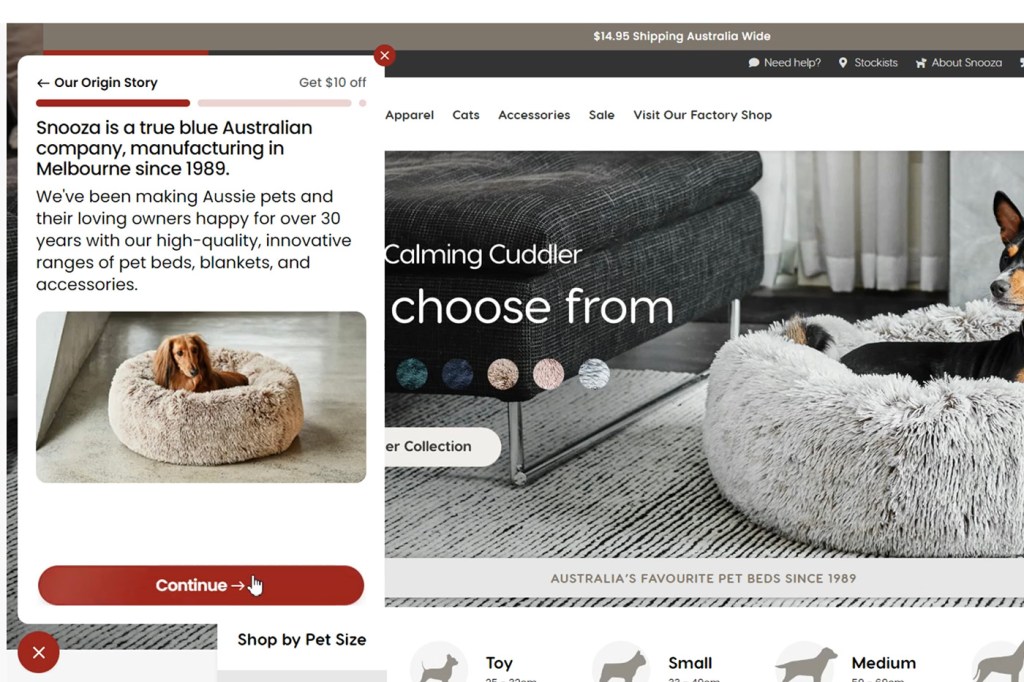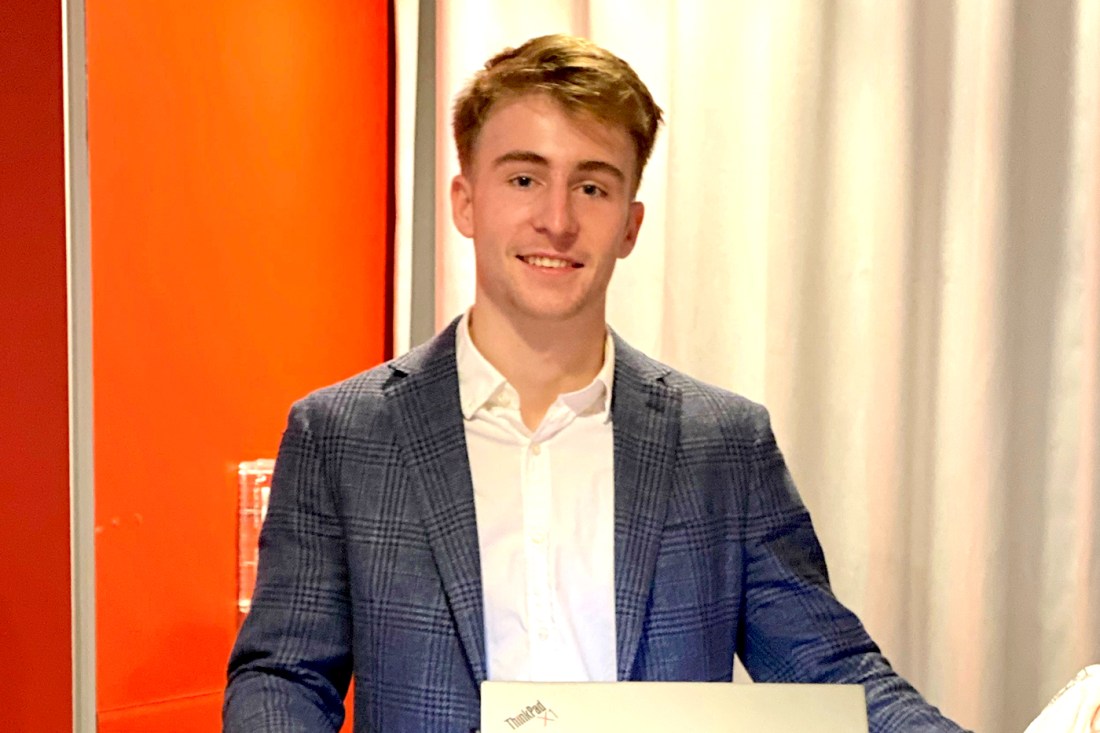Northeastern grad goes from schooling to working full time at web development startup he created
Cory Gill graduated from Northeastern in May with two co-ops under his belt and is now working on building his own company.

Annoying pop-ups often bombard people when they go to a new website.
Even if these pop-ups are offering a discount in exchange for signing up for a text or email list, many people tend to click out of them.
Recent Northeastern graduate Cory Gill spent a good part of his years at the university working on a solution. Gill and some fellow students developed software and started a business venture — Alia — while attending Northeastern. Utilizing many of the entrepreneurial programs at the university, Alia launched last year with a fix to the pop-up problem.

“We replaced those with a much better experience,” Gill said. “Lots of brands reward shoppers for learning. (Alia incentivizes) shoppers to learn about the brand, the story, the products and basically gets them to engage with the content that you might not always engage with and get incentives for learning more.”
Gill graduated in May with a degree in finance and economics with minors in computer science and psychology. He finished his studies at Northeastern having completed two co-ops in finance — one at Brown Brothers Harriman and the other at Credit Suisse. He even received a 2024 Co-op Award from the D’Amore McKim School of Business for “demonstrated excellence.”
Upon graduation, Gill stepped into the venture full time. Working for himself right after school has been an adjustment, Gill said. But having experience working in a more traditional corporate setting through his co-ops helped him learn crucial technical and finance skills for running a startup. He credits Northeastern’s commitment to experiential learning for making him more willing to try new things and start real-world endeavors while still a student.
“I think that’s why the entrepreneurship program flourishes,” Gill said. “There’s a ton of resources. That alone was super helpful. We were involved in pretty much every single club on campus that supported entrepreneurs and startups. But I think the culture of Northeastern is to get your hands dirty, try and fail, and try new things. I think that mentality helped a lot in terms of going from an actual idea to really building something.”
Featured Posts
Alia launched in September with the help of Northeastern’s Mosaic organizations, like Generate, which help student ventures in their development. The business got off to a slow start, Gill said, but picked up as news about Alia spread through word of mouth from satisfied clients. Gill said one client went from seeing $5,000 a month in pop-up sales to $105,000, showing how more engaging pop-ups can make a difference.
“Being able to deliver clients value has really helped a lot,” Gill said. “It’s a new idea and … now that there’s some solid proof behind it, it’s been really big for us. We had a naive optimism that it would work just because we were young and first-time founders. … We were fully all in, It’s been nice to have some serious traction.”
Alia specifically replaced typical pop-ups on Shopify stores with more engaging features that offer discounts in exchange for learning more about the brand.
“No matter what, education is going to be beneficial, because people are just going to buy into it more,” Gill said. “They’re not just bouncing from the website right away without having a somewhat understanding of what you do and your brand. A lot of these brands are founder-led. It’s highlighting that there’s a person behind the brand and that also helps with engagement and future engagement as well.”
The next step, Gill said, is to scale up so Alia is bringing in seven figures in revenue a year and working with thousands of merchants. Right now, the company works with several hundred brands.
Gill also met his Alia co-founder on co-op at Credit Suisse and connected with people who’ve help guide him on this new business endeavor. Alia has now helped brands make over $3 million in sales.
“I also think (co-op) made me realize what I did and didn’t want to do which made me more motivated,” he said. “(Working at a self-founded startup) is definitely pretty uncommon. It has some weird ups and downs (but) it’s great because you get to learn a ton. I’ve learned stuff that would have taken probably years for me to have experienced, like dealing with brands that are earning a couple million (dollars) a year. It’s a pretty rare circumstance where they’re interested in your product. You don’t always get that when you’re 22. I love that every hour that I put into it is an hour going into our ultimate goal, which is amazing. And I think my co-founders feel similarly about that.”











